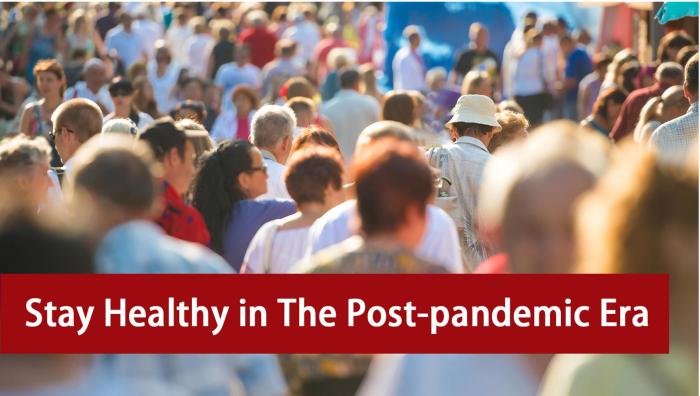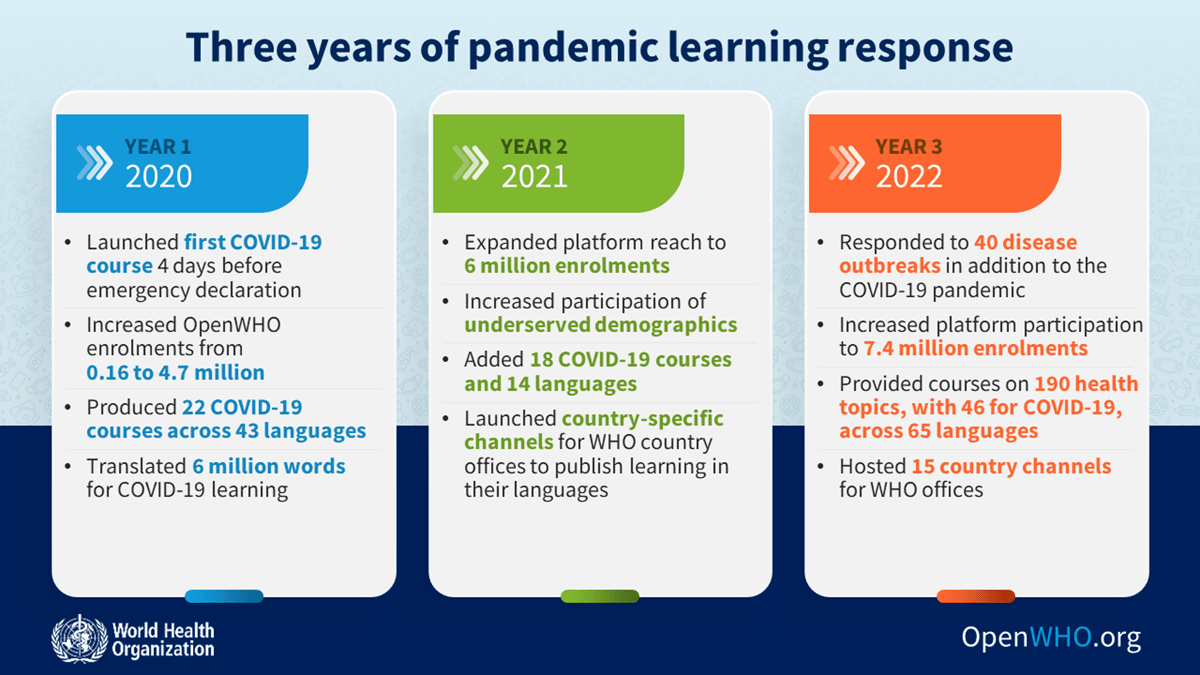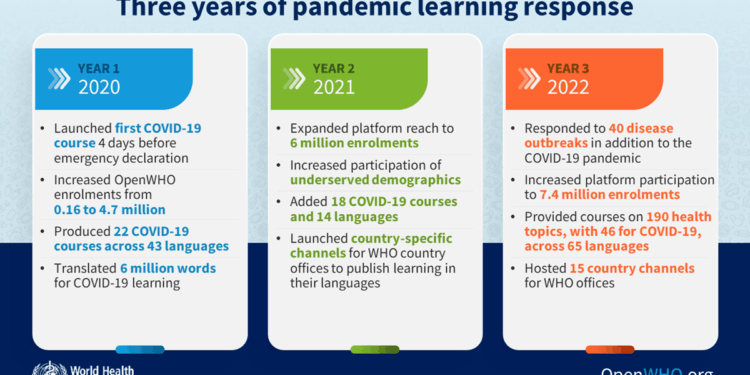Embark on a journey to discover the best practices for post-pandemic health routines, exploring the vital aspects that contribute to a healthy lifestyle in the new normal. From physical activity to mental health practices, this guide covers it all with expert insights and practical tips.
Best practices for post-pandemic health routines

Establishing a post-pandemic health routine is crucial for maintaining overall well-being and immunity after the challenging times faced during the pandemic. It allows individuals to prioritize their health and make sustainable lifestyle changes to prevent future health risks.
Key Components of a Post-Pandemic Health Routine
- Regular Exercise: Incorporating physical activity into your daily routine helps improve cardiovascular health, boost immunity, and reduce stress levels.
- Healthy Eating Habits: Consuming a balanced diet rich in fruits, vegetables, whole grains, and lean proteins can support immune function and overall health.
- Adequate Sleep: Getting enough restorative sleep is essential for proper immune function, mental health, and overall well-being.
- Mental Health Practices: Engaging in activities like meditation, mindfulness, or therapy can help manage stress, anxiety, and improve mental resilience.
- Hydration: Staying hydrated by drinking enough water throughout the day is essential for maintaining overall health and supporting bodily functions.
Differences Between Post-Pandemic and Pre-Pandemic Health Routines
- Increased Focus on Immune Health: Post-pandemic health routines may place a greater emphasis on boosting immune function through healthy habits and practices.
- Heightened Awareness of Hygiene Practices: Individuals may continue to practice improved hygiene measures to prevent the spread of illnesses and viruses.
- Mental Health Prioritization: The pandemic has highlighted the importance of mental health, leading to a greater focus on mental well-being in post-pandemic health routines.
- Flexibility and Adaptability: Post-pandemic health routines may incorporate more flexibility and adaptability to accommodate changing circumstances and uncertainties.
Physical activity in post-pandemic health routines

Regular physical activity is crucial for maintaining a healthy lifestyle, especially in the post-pandemic era. Exercise not only helps in managing weight and improving cardiovascular health but also boosts immunity, reduces stress, and enhances overall well-being. Incorporating physical activity into your daily routine can significantly improve your quality of life and reduce the risk of chronic diseases.
Examples of effective post-pandemic workout routines:
- Cardiovascular exercises like running, cycling, or dancing can help improve heart health and stamina.
- Strength training with bodyweight exercises or weights can increase muscle mass, bone density, and metabolism.
- Flexibility and balance exercises such as yoga or Pilates can enhance mobility and prevent injuries.
Comparison of different types of physical activities suitable for post-pandemic health routines:
| Physical Activity | Benefits |
|---|---|
| Cardiovascular exercises | Improve heart health, stamina, and overall fitness levels. |
| Strength training | Increase muscle mass, bone density, and metabolism for better weight management. |
| Flexibility and balance exercises | Enhance mobility, reduce the risk of injuries, and promote relaxation. |
Nutrition and diet considerations
Proper nutrition plays a crucial role in post-pandemic recovery and maintaining overall health. As we navigate through the aftermath of the pandemic, it is essential to focus on a balanced diet to support our immune system, physical well-being, and mental health.
Designing a balanced post-pandemic diet plan
- Aim for a variety of fruits and vegetables to ensure you get a wide range of vitamins, minerals, and antioxidants.
- Incorporate lean proteins such as poultry, fish, tofu, or legumes to support muscle health and repair.
- Include whole grains like quinoa, brown rice, and oats for sustained energy levels and fiber intake.
- Don't forget healthy fats from sources like avocados, nuts, seeds, and olive oil to support brain function and heart health.
- Stay hydrated by drinking plenty of water throughout the day to aid in digestion, nutrient absorption, and overall well-being.
Adjusting dietary habits in a post-pandemic world
- Focus on mindful eating practices to savor and appreciate your meals, which can help prevent overeating and promote better digestion.
- Limit processed foods, sugary snacks, and high-fat treats that can contribute to inflammation and weaken the immune system.
- Consider meal prepping and planning ahead to ensure you have nutritious options readily available, reducing the temptation for unhealthy choices.
- Listen to your body's hunger and fullness cues to maintain a healthy relationship with food and avoid emotional eating triggers.
- Consult with a healthcare professional or nutritionist to personalize your diet plan based on your individual needs, health goals, and any specific dietary restrictions.
Mental health practices
In the post-pandemic era, managing stress and anxiety is crucial for overall well-being. Incorporating mental health practices into daily routines can help individuals cope with the challenges of the new normal.
Strategies for managing stress and anxiety
- Acknowledge and accept your feelings: Allow yourself to feel and express your emotions without judgment.
- Practice mindfulness and meditation: Engage in activities that promote relaxation and mental clarity.
- Maintain a routine: Establishing a daily schedule can provide a sense of stability and control.
- Stay connected: Reach out to friends and loved ones for support and social interaction.
Techniques for promoting mental well-being
- Engage in regular physical activity: Exercise releases endorphins that can boost mood and reduce stress.
- Get enough sleep: Prioritize quality rest to support cognitive function and emotional regulation.
- Limit exposure to negative news: Stay informed but avoid constant consumption of distressing information.
Connection between mental health and physical health
- Healthy mind, healthy body: Mental well-being is closely linked to physical health, with one influencing the other.
- Stress impacts physical health: Chronic stress can lead to various health issues such as high blood pressure, weakened immune system, and digestive problems.
- Self-care practices: Prioritizing mental health through self-care activities can improve overall quality of life and reduce the risk of developing mental health disorders.
Sleep hygiene and relaxation techniques

Quality sleep plays a crucial role in post-pandemic recovery, as it allows the body to rest, repair, and recharge. Incorporating effective relaxation techniques into your daily health routine can help reduce stress, improve mood, and promote overall well-being. By enhancing sleep hygiene, you can optimize the quality of your sleep and experience better physical and mental health post-pandemic.
The Importance of Quality Sleep
Quality sleep is essential for the body to recover and rejuvenate after the challenges faced during the pandemic. It helps boost the immune system, improve cognitive function, and regulate mood. Adequate sleep can also enhance productivity, focus, and overall quality of life.
Effective Relaxation Techniques
Some effective relaxation techniques to incorporate into your daily routine include deep breathing exercises, meditation, progressive muscle relaxation, and aromatherapy. These techniques can help reduce stress, anxiety, and promote a sense of calm and relaxation.
Improving Sleep Hygiene for Overall Well-being
Improving sleep hygiene involves creating a sleep-conducive environment, establishing a regular sleep schedule, avoiding stimulants before bedtime, and practicing relaxation techniques. By prioritizing good sleep habits, you can enhance your overall well-being, energy levels, and resilience post-pandemic.
Final Thoughts
In conclusion, adopting these best practices for post-pandemic health routines can pave the way for a healthier and happier future. By prioritizing physical activity, nutrition, mental health, sleep hygiene, and relaxation techniques, you can enhance your overall well-being and thrive in the post-pandemic era.
Quick FAQs
What are the key components of a post-pandemic health routine?
The key components include regular physical activity, a balanced diet, stress management techniques, quality sleep, and relaxation practices.
How do post-pandemic health routines differ from pre-pandemic routines?
Post-pandemic health routines may emphasize more on mental health practices, adapting to new dietary habits, and incorporating effective relaxation techniques due to the changing landscape.
What role does nutrition play in post-pandemic recovery?
Nutrition plays a crucial role in post-pandemic recovery by providing essential nutrients to support the immune system and overall well-being.







![Sleep Statistics By Mental Health and Facts [2024*]](https://br.genpi.co/wp-content/uploads/2025/09/VaNVZ-health-issue-impacting-sleep-75x75.png)


